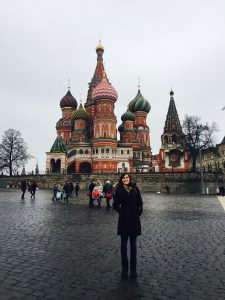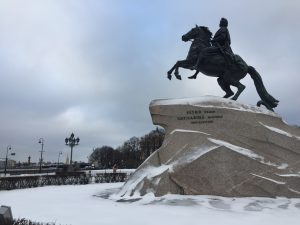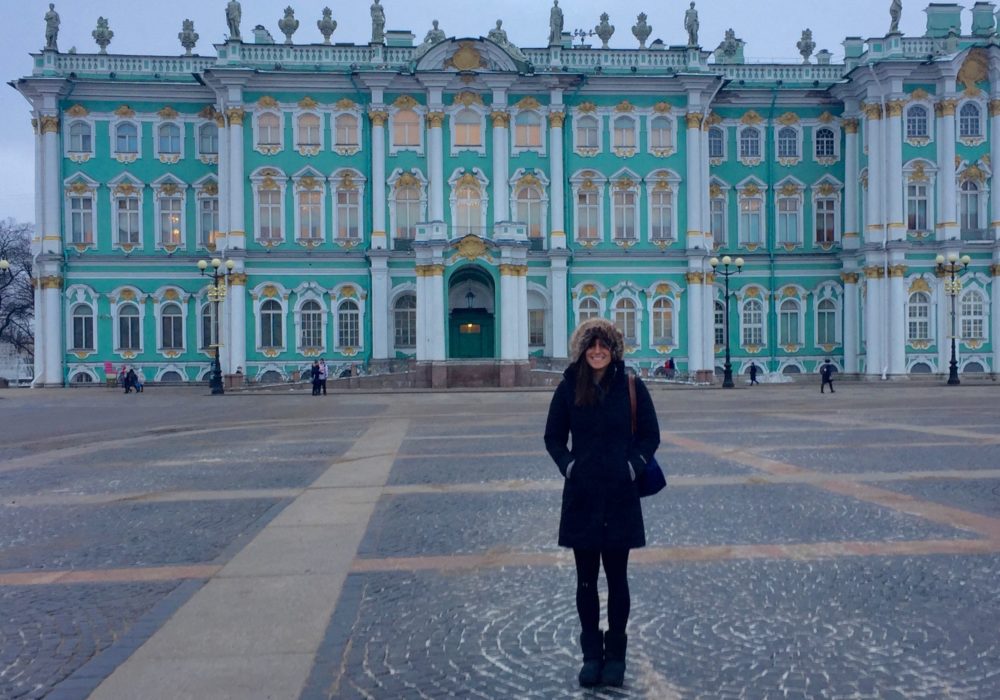Text and Photos By Lydia Hackert

Lydia Hackert (Class of 2018) participated in the January 2018 Darden Worldwide Course to Russia, which took students to Moscow and St. Petersburg, focusing on adapting products, services and businesses to an emerging market. Lydia, who worked for the U.S. Department of State before coming to Darden, shared her reflections on the course and how it fits into her overall MBA experience:
I came to business school not only develop a set of hard quantitative skills but also to hone a new way of approaching problems and questions. One of my greatest takeaways from the curriculum thus far is the importance of living and breathing an issue before you begin to analyze it. In Operations, we talk about “go to the gemba” or go to the source. Visit a factory, see their operations, understand the process. In Design Thinking, we talk about “360 empathy” or physically putting yourself in the shoes of your subjects. Not just interviewing people about their experience in a hospital system but also walking the paces from waiting area to patient room, filling out the forms yourself.
I learned from my trip to Russia that these same practices apply to understanding culture. Being in Russia, rather than evaluating it from afar, changed my perceptions of the role of media, my appreciation of how history impacts culture, and also reminded me to keep the analytical perspective that business school helps us to hone.
I am lucky to have had the opportunity to travel quite frequently throughout my lifetime. But I realize that most of that travel has been to countries that are stable and western, and whose cultures are either readily understood or very similar to my own. Traveling to Russia was an entirely new experience for me. So much of my perception of the country and the culture has been based on a robust history of adversarial relations with the U.S. and the portrait painted by the U.S. and international media- a portrayal that after visiting Russia I see is not the entire picture. Had I not had the opportunity to visit Russia personally, my view of Russia would have been forever colored by that media portrayal.

Russia has an entirely unique history and I now better understand how the communist period has played into the political, social, and business climate today. Moreover, I hadn’t previously considered how young Russia is in its modern form and how that “youth” impacts business industries such as health care. I was impressed by Russia in many ways yet it’s clear the country has room to grow.
As we visited many of the sites in Moscow and St. Petersburg and listened to speakers, I also tried to keep in mind the things that weren’t being said. I admired the Moscow metro and its museum quality beauty and punctual timing, but wondered the cost that ordinary citizens paid in finances and labor to build the system. I was completely floored by the beauty of the Winter Palace and Hermitage but imagined to myself the life of the servants in the palace rather than the more privileged residents and guests. Questions that I might not have pondered had I not visited in person. Business school teaches us the power of “going to the source” but it also teaches us to question everything.
I learned on the course to Russia that the tools we use in business are the same that we can use when learning about other cultures. We should keep an open mind, go to the source instead of judging from afar, and continue to question everything.

